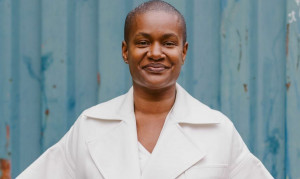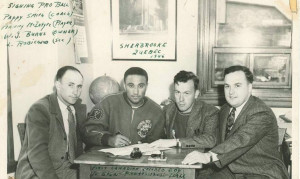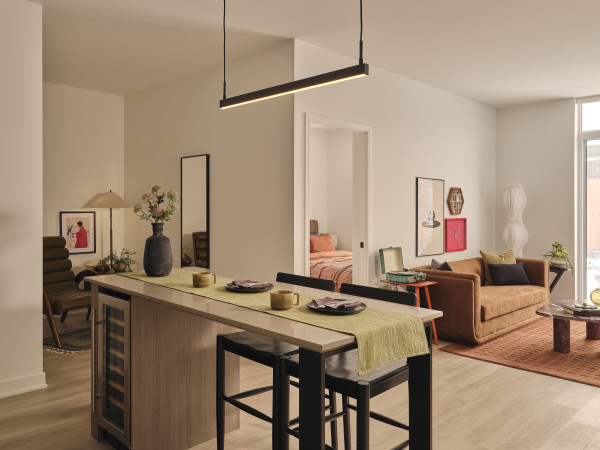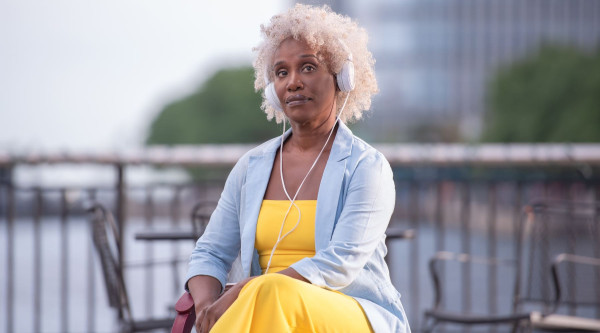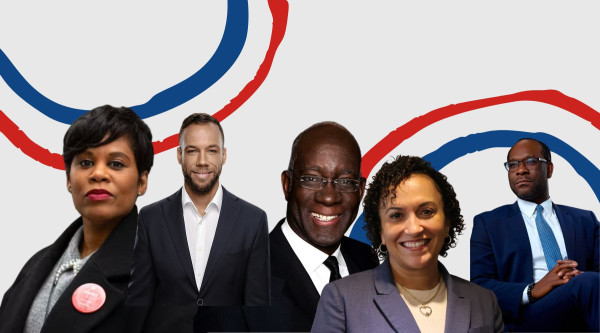Thousands of Canadians started their day with Ien when she was the news anchor and co-host of CTV’s national morning program, Canada AM, between 2001-2016. When the show was cancelled after 44 years, Ien made the switch from news anchor to talk show host, joining the coveted couch on one of Canadian television’s most popular daytime programs, The Social. Ien loved her job and grew to become close friends with her new co-hosts. She loved talking to people about their lives, and enjoyed being able to speak about issues that mattered to her as opposed to just reporting the news. In her role as a co-host on The Social, Ien often spoke about social issues like gender equality and systemic racism, particularly in the wake of several violent incidents we saw this past year. According to Ien, she had even considered retiring there. Despite all of that, Marci decided to leave her journalism career behind, at the age of 51, this past summer.
Following the resignation of former finance minister and Member of Parliament, Bill Morneau, Marci Ien was presented with an opportunity. Morneau represented the Toronto-Centre riding for the Liberals, and exactly one month after his resignation was announced, Ien revealed her intention to run to replace him in the upcoming by-election. On October 26, she won the by-election, beating out new Green Party leader, Annamie Paul, in the process. The decision to enter the political arena didn’t come easily, but she saw the opportunity to be an MP as a way to build upon the work she had been doing throughout her career. To her, the difference between being a broadcaster and being a politician is that she could transition from talking about change, to actually enacting it. Ien has long been an advocate for humanitarian causes like human rights overseas and representation in the media...and while the decision to shift from journalist to politician might seem like a natural or calculated career progression, for Ien, it was never her plan.
When you were reporting at Queen's Park back in the ‘90s did you ever imagine that you would find yourself as a politician?
You know, a couple of us [journalists], have made the leap, but I don't know that it’s anyone's intention. It certainly wasn't mine. My favourite thing about reporting was connecting with people, and that’s what I’m finding is the transferable skill here.
Bill Morneau resigned as finance minister and relinquished his seat in the House of Commons on August 17, and exactly one month later you announced that you were going to run to replace him. What was going through your mind and what was your life like during that period?
My life was just fine. I was doing the show. I was using my microphone well, or so I thought. Though I had to say, we were dealing with a lot of social issues. We were dealing with Black Lives Matter, and we had been for some time. We were dealing with BIPOC (Black & Indigenous People Of Colour) issues, talking about women in politics and the lack thereof. Particularly diverse women in politics and the lack thereof. So when this happened, it was one of these things where I might have opted to just sit there talking about this stuff, because I really thought I was using my microphone to talk about these issues and what it's like to be a Black woman and Black mother in Canada; all the fears and the challenges. It's one thing to talk about these issues and raise awareness, but it's another to maybe have the capability to put some action to the words. I made a very hard decision to talk to my family about it. At first it was, "wow, I didn’t expect this," but after everyone thought about it, the consensus became, "you’ve absolutely got to go forward with this."
I know that you have two kids and that your dad is very influential and important in your life. Was there any advice that you got from him or any comments that stood out to you?
What my dad said to me was really very poignant. He said, "I'm not sure I would’ve had the courage at 51 years of age to pivot like that and to walk away from what was comfortable." I had a good job and had been at that job for a couple of decades. Frankly, I probably could have retired there and continued to do quite well. My dad said that he loved me and that he was so proud. He said that I was courageous and that meant a lot. The other part of this is my mom. A couple of days before I started campaigning my mom had a stroke and it was really one of those things where I thought, Oh my goodness, have I done the right thing? I'm not gonna be able to be there for her the way I need to be there for her. So a lot of things fell to my sister and all of a sudden it was my sister taking on a lot, and she has her own family. My mom was in hospital every day for the bulk of the campaign so it was a lot to know that and still push forward. My mom said, "You move forward and you do this," so that’s what I did. I just woke up every day and did what I had to do because it was too much to bear. I hit the ground trying to talk to as many people as I could about why I wanted to serve them, and I just kind of tried not to think about it during the time I was working - but it was very, very difficult, and I didn’t want to talk about it. It was not an easy time but my family was completely behind me. I told Blaize, my 16-year-old daughter, "I have plans for us. I have to get you into university in a couple of years and I want to make sure I can do that." Then she said, "You're saying a lot of ‘I’ right now and it either comes down to you and what you want to do, or all of us." So I thought, it's gonna be all of us. It's so important to have people with more life experiences, different life experiences, and people of color at the table. That's why I'm here, to serve. I thought I was serving by talking about what I was talking about, interviewing, and being on that panel of amazing women on The Social. I thought I was serving that way, and I suppose I was, but this is a different kind of service. I can't wait to get started.
Well, your mother and your whole family are definitely in our thoughts. Pressing on with your decision to join the Liberals, the Liberals have come under fire a lot in the last couple of years for ethics and decision-making reasons. From Elections Canada infractions, the WE Scandal, and the Prime Minister in blackface earlier. I'm curious, why did you decide that the Liberal Party was the right party for you to run under, and to expand on that, why do you think that the Liberal Party is the right party for Canada right now?
After the Blackface scandal happened in February, I went to Ottawa and did an interview with the prime minister during a fireside chat. That was one of the questions I asked him. I asked, What do I tell my nine-year-old son when these pictures emerge of the prime minister in blackface? He looked at me and he said, "Marci, tell them that the prime minister says he's sorry, and you tell him that it was a major error in judgment." I think I'm a pretty good judge of character, and it was good that I was in person so I could see his body language and everything else. When he said that to me, it was enough. It was enough for me to move on and be okay with that. So there's that. The other part of this is that this is a party whose values align with mine. This is a prime minister who has quickly acknowledged systemic racism when other party leaders have refused to do that, and has said, Yes, it exists, and it's time to create programs that will help the Black community. That doesn't mean that things change overnight. You can’t change a system overnight, but acknowledging that something like this exists, acknowledging Black Lives Matter and that BIPOC lives matter, is a huge thing. That's what this government has done. The other part of this is that the Liberal Party wanted me at a time where I was anything but neutral. I was speaking out about systemic racism, speaking out about Black Lives Matter, and speaking out about Indigenous people; how we let Indigenous people down as a country. I was speaking out about being a Black mom and crying when I learned that I was having a Black son because I knew about all the things that that would mean. I talked about the conversation Black parents must have with their kids that other parents don’t have to have, concerning the police and how they have to manoeuvre this world. With all of those things, that is when I was given this opportunity by the Liberal Party. So that says a lot. It wasn’t when I was a neutral news reporter and I had to be because I was telling other people’s stories. It was when I was on a talk show and sharing my opinions and talking about things that matter to me. That's who they wanted at the table so I knew that it was the right party for me. As to your last question...when you look at the COVID response, and believe me, this is what I heard at the doors while campaigning, this government responded so very well, and continues to respond so very well, in order to help Canadians. Honestly, I think this government has shown that it puts Canadians and their health first. We don't need to look too far from us to understand how things can go very, very wrong. Things aren't perfect, but so much has gone right in lieu of this time, and I was proud to campaign on the government's record.
You've been in the public eye for a long time and I'm sure that you've been trained or you're used to having a certain level of attention and scrutiny placed on you. I can only imagine that both of those will be increased in their intensity now that you are an MP, especially at a time when politics, in general, feels very divisive and ugly. I'm curious how you have prepared yourself to deal with that divisiveness?
It’s leading with empathy and by example. That's something I believe in and something that I do. I think it's a simple thing but I really do believe that if people stopped and just took a minute to listen and understand our opponents, the other side, that we'd be much better off. So the first thing I’ve done is to meet the leaders and other levels of government in my riding. Kristyn Wong-Tam, the city councillor and I, have met. Suze Morrison (NDP) at the provincial level and I have met. I've said that I want to work with people, no matter which party you belong to, nor who you are. What matters is that Toronto-Centre and the people in it are first and foremost on your agenda. That's what I want to do, and it's important that we work together. There are a lot of things, like housing, that are really cross-jurisdictional and top of mind for me. If we get the province, the city, and the federal government working together, we can do some amazing things. That isn't always the case where you have cooperation between all levels, and I’ve said to both Kristyn and Suze that this is what I want for this riding; that people see it is time to work together. That's something we've learned within this pandemic. It’s so interesting. Look at Doug Ford and Chrystia Freeland. We’ve all heard about their amazing working relationship. Who would’ve thought? This is what happens in extraordinary times. People forget the partisanship and they say, “we’ve just got to work together and do what we can.” That’s been a huge lesson learned.
I'm glad that you mentioned empathy because you tweeted earlier this year that “My biggest hope is that people understand what empathy is,” and this was in reference to the new season of The Social. Why do you think it's important that people understand what empathy is, particularly given the fact that we are all experiencing a pandemic?
People are suffering in many ways right now. This pandemic has isolated many of us. People have lost jobs, have issues paying bills, and all of these different things are happening. If we can't be understanding now, put aside our prejudices and our emotions for just one second to think about somebody else, then we’ve got a big problem. Kindness is a simple thing, and it goes a long way. It’s also a choice. There’s no need to scream or shout. Just listen, and then speak. My dad always said, "We've got two ears and one mouth for a reason." I don’t think we listen enough. I don’t think we allow ourselves to feel the pain of others. So if we were to do that a little more often, people wouldn’t be as cruel, and that’s why I tweeted that. I think I was also tweeting that because social media has not always been kind to me. I've taken a lot of hateful and hurtful things through the years because of the way that I’ve spoken and the things that I’ve said on The Social, and I say that that’s been preparation for this job. A lot of my friends and family were worried, Camille Dundas [Editor-in-Chief of ByBlacks.com], included actually. Camille was worried because she knew I’d be so much more out there. I said to her, this is preparation. At least I know what it’s like because people get very brave behind a screen and will tweet or post something forgetting that they’re talking to a real person with feelings.
I wanted to go back to the by-election because one of the people you ran against was Green Party leader and fellow Black woman Annamie Paul. Is there anything that you'd like to say to her or about her and the race that you both just ran?
As soon as Annamie became the Green Party leader, I tweeted, “Oh my goodness, congratulations! This is history.” It was amazing and she is amazing. I also called her after the election and thanked her for a great and respectful race, because that hasn’t always happened. I said I'd hopefully see her soon. It goes to show, the more of us, the better. She’s the Green Party leader, I’m the MP-elect, and it’s a win for both of us.
I’m glad that you brought that up because in researching for this interview and the interview I did with Annamie, I found that according to Black Vote Canada, with you now being appointed, there are only 30 Black elected officials in this country, across all levels of government. It's a very small percentage. What do you think is the key to having more Black representatives in politics?
The key I think is doing an excellent job once you get there. It is that saying that, as Black people blazing trails, you're carrying the community with you and representing more than just yourself. So it's knowing that and doing your best at all times while breaking more ground. It's also mentoring, and I always have an eye on who's next. I am now MP-elect, but who can I mentor to get here? It's encouraging people to run, and encouraging people of color to think about politics. It's important too for them to see it as viable.
You mentioned this earlier, but you have been very vocal about anti-Black racism and systemic racism in Canada before the reckoning we’ve had this summer, and before your candidacy for the by-election was announced. From what you’ve seen and heard, what makes it so difficult for Canadians to have meaningful conversations about racism in Canada?
Because we have our friends to the south. When we see what's happening to the south of us, we think, well, we're not so bad, right? Because it's a comparative study. Even after George Floyd, there were so many articles that still asked the question, “Does racism exist in Canada?” Why are we even asking that question? Every time something major happens we ask the question, and we know that it is the case. It's almost like there's a segment of us that just doesn't want to admit it. Admitting it leads to understanding it and that's where the empathy comes in. That’s what I'm talking about. Listening to the stories of others and validating those stories, with the proper response. This is what I mean about Justin Trudeau, who has said there absolutely is systemic racism in Canada and it's our job to combat it. It's our job to do something about it and that's not something that everybody in a leadership position in this country does.
In 2018, you ran into an issue with the public and with Toronto Police over a traffic infraction. In the back and forth between you and an officer, you said that “The point is not whether I did or didn't do something, it's how I felt. It was his tone, and it scared me.” Given the racial reckoning that we've had, and that people are beginning to have these conversations, why do you think it's important to emphasize how the interaction played out and how it made you feel?
Because people don’t understand and I needed them to understand, which is why I wrote in the Globe and why it’s a chapter in "Off Script", the book I just wrote. In that book, I get into exactly how I felt when I finally got into the house. I collapsed at the door in front of my then four-or-five-year-old boy in a ball of tears and I was scared. I phoned my co-host, Lainey, and was terrified. People need to understand that there are layers that Black Canadians in this country carry; layers of trauma. They come from seeing your own father stopped, seeing your best friend taken down by the police for a case of mistaken identity, or so they said. It comes from seeing every person you know being stopped, and not for the right reasons. Those are traumatic things that are carried into a traffic stop, so a traffic stop is never just a traffic stop. A traffic stop means you're reaching into your glove compartment, grabbing your insurance, grabbing your ownership, making sure it's visible, and making sure your hands are where the officer can see. These are the things that go through the minds of Black people that don't go through the minds of others. That's what I wanted people to understand. All of that. When I said it didn't matter whether I did or didn't do something, what I meant was, if I did something, then just give me a ticket please. Why are you asking me, in my own driveway, whether or not my house is my house or my vehicle is my vehicle? Why are you asking me that when you’re holding my information, and why is this happening to me in my neighbourhood all the time?
In the last few years, you've moved from Canada AM, which you hosted for 15 years, then to The Social, and now you're going to be an MP. I also understand that you and your husband have also separated. I'm curious as to how have you dealt with all of these changes and what you have learned from them?
I've learned that discomfort can be a really good thing. I think if we’re going to learn in life, we’ve got to move toward fear and not away from it. That’s where the real lessons are. It takes courage to do that and I somehow have summoned the courage to do it. After all the years of interviewing other people and having them open up about their stories, then to be in a situation where I had to tell my own, was a completely different thing because it wasn’t the story of others, it was me. To be honest about it and to share like that took a great deal but was a privilege to do. The transition from Canada AM to The Social both allowed me to, and made me ready for, this latest transition. Understanding that at the age of 51, I can still pivot again.
The pandemic has been stressful and uncomfortable. When it will end is unclear, but what is something that you are hopeful for or looking forward to in the upcoming months?
On a personal note, I want to have our family together again because of my mom's situation. My dad is not in great health either. We haven't been able to be together like I would want us to be, Y'know? Have a big ol’ family dinner with everybody at the table and that hasn't happened. So I'm really looking forward to that. Who knows what will happen in December for the holidays, but I'm really hoping that we can be united in the same room. I just want to hug each and every one.
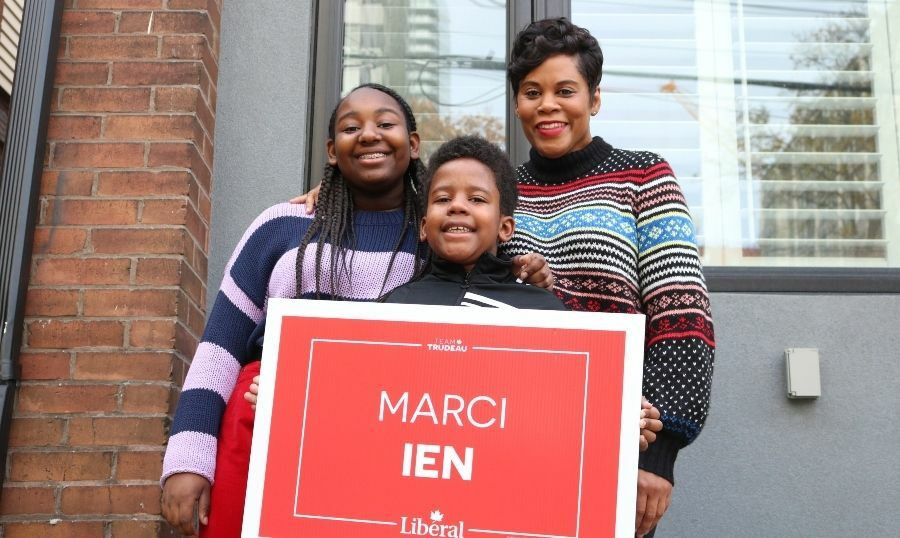
 By
By 




